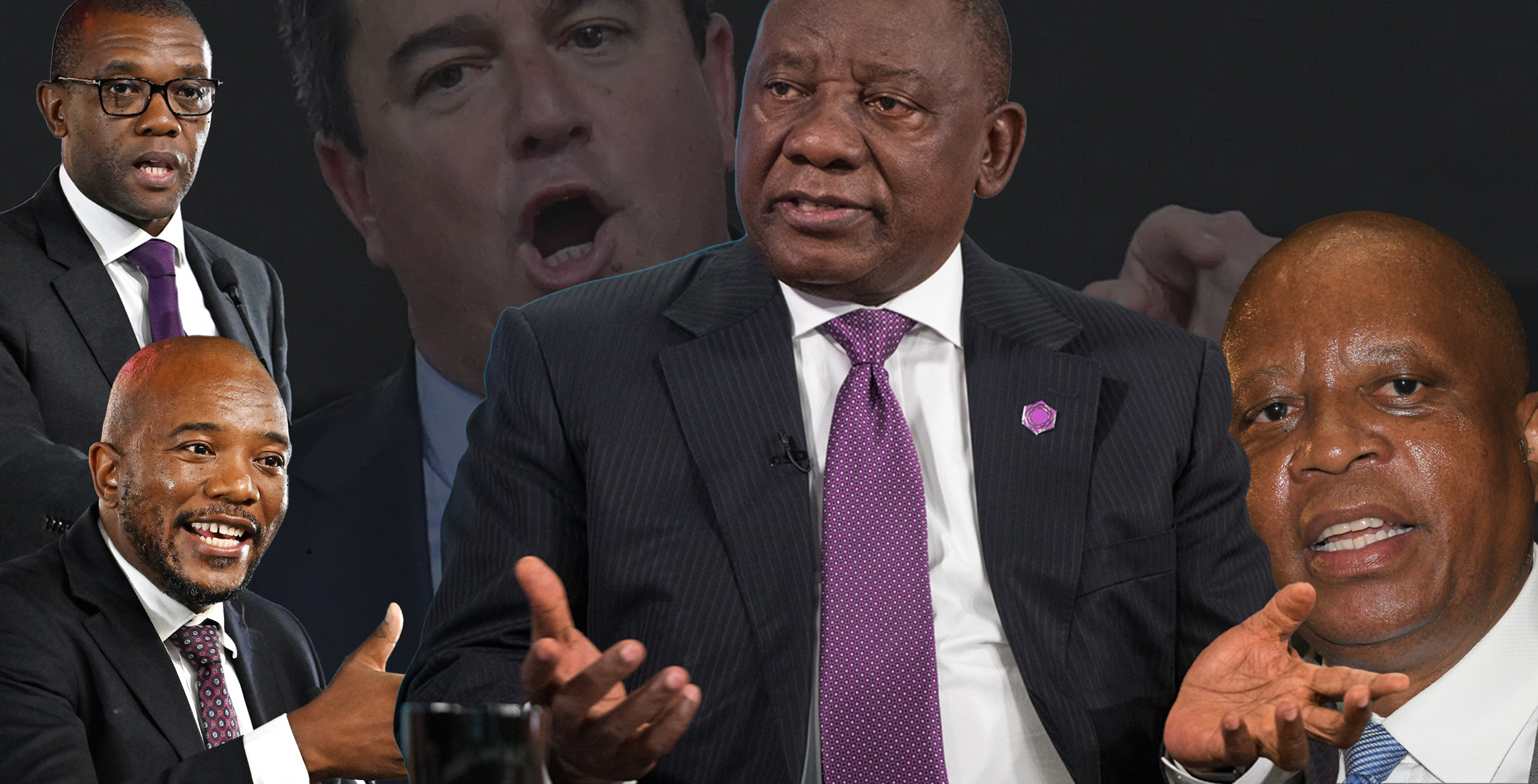Some of the language used by members and leaders of the ANC and the DA over the past few weeks may well suggest that, politically, 2024 never happened.
Instead of the two parties forming the basis for a national coalition and trying to work together, it seems they are deliberately trying to antagonise each other.
Perhaps nothing sums this up as much as the DA taking to court the process that saw the adoption of the fiscal framework. It was textbook DA, something they have done many times in the past.
For the ANC, from some of the apparent jeering and the reaction in the National Assembly when the framework was passed, it was clear it was all about “beating” the DA.
While it’s entirely understandable that MPs might well have felt betrayed by the DA in the Budget process, and that to then have the framework pass without them would lead to triumphalism, there may well have been something else. Perhaps something about our past, and about how much time the two parties have spent fighting each other.
Read more: Take VAT! GNU comes unstuck as fiscal fracas plays out in National Assembly
All of this suggests that the real problem may be that the two parties, and their leaders, have simply not shaken off the patterns of our recent history.
Even the original DA decision not to support the first VAT increase could smack of the DA trying to stop the ANC from doing something.
The ANC, of course, has not changed either. The idea of implementing a two-percentage-point VAT increase without consultation with the biggest coalition partner smacked of arrogance.
As did some of the previous actions of President Cyril Ramaphosa. For the DA, it must have felt that his decisions to sign into law Parliamentary Bills from the previous Parliament, such as the Bela Act and the Expropriation Act, were deliberate actions designed to put the DA under pressure.
Mashatile steps forward
Other aspects of this reveal that our politics has not changed.
In the past few days, it appears that Deputy President Paul Mashatile has been more politically assertive than perhaps at any time since the days before the ANC conference in 2022.
He has made it fairly clear that he would prefer the DA to be out of the coalition. On Monday, he said publicly that “he would be ashamed” to be a DA minister who voted against the fiscal framework last week and yet remain in government.
While Mashatile may not be an expert on shame, this is unusual in that he is certainly making his preferences clear.
But the question of who the ANC works with in national government is completely intertwined with the ANC’s leadership contest. And while it is not clear at this stage if Mashatile has a broad enough constituency to take over from Ramaphosa, he must be one of the frontrunners.
Of course, it is also true that for the ANC to govern without the DA, and with only smaller parties, would be close to impossible. It would mean that virtually every vote would be as difficult as last week’s fiscal framework vote.
Read more: Power without the DA – here’s a possible new Government of National Unity
Unless of course the ANC decided to work with MK or the EFF, in which case, Ramaphosa would surely have to leave office, with all of the turmoil that would cause. This would also lead to the ANC losing support more quickly in future elections.
But this shows how some ANC figures may still be preoccupied with internal dynamics and their internal fight for power, rather than with the bigger picture.
In the case of Mashatile, should the ANC decide to retain the DA in government, it would show that he has been overruled, which would be an important indication of his level of political power.
Newer parties
Unfortunately, even some of the newer parties, which represent a post-apartheid political identity, do not appear to be trying anything new.
All three of Action SA, Rise Mzansi and Bosa appear to represent a multiracial, largely urban constituency. They do not represent parties that existed during the apartheid era (unlike the ANC, or the DA, or the IFP, or MK, or the EFF, who all have their roots in pre-1994 formations).
It would be rational to assume that if anyone were to do something new in this situation, it would be the newer parties.
Alas, for the moment, that does not appear to be the case.
Instead, there is a huge amount of jockeying for position. This is particularly the case with Action SA, which is now still debating whether to join the coalition if the DA leaves.
Unfortunately, Rise Mzansi and Bosa, which both hold important positions in the budgeting process, have battled to gain traction with any new proposals or ideas.
Read more: ANC’s fallout with DA escalates as Ramaphosa pushes back on business pressure
The real sadness of the current situation involving the DA and the ANC is that this fighting started long before the Budget. Even in departments, between ministers and deputy ministers of different parties, there were disagreements.
The fact that the DA’s Communications Minister Solly Malatsi and his ANC Deputy Minister Mondli Gungubele disagreed so publicly about the SABC is just one example.
It was always to be expected that two parties that had fought each other for so long would find it difficult to work together in government. And that the first year would be the most difficult.
That said, it is incredibly disappointing that very few of our leaders seem to understand how our country is changing, and how our politics needs to change.
For the moment, there appears to be a lack of vision for any kind of political future. Instead, our leaders are happy to fight their battles of the past.
This is because this is territory they know – and because none has a roadmap to a better future. DM





